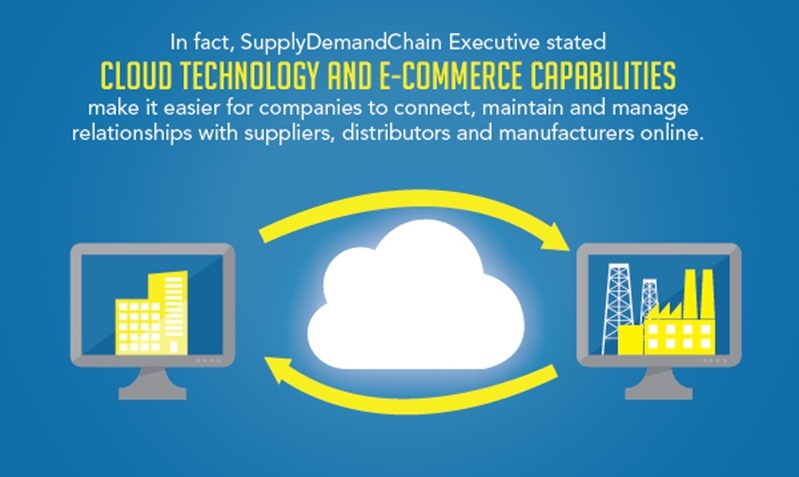On Oct. 5, 12 participating countries reached an agreement on the Trans-Pacific Partnership, a trade agreement among Pacific Rim countries concerning matters of economic policy. The TPP is expected to reach full ratification within the next two years, and will have a positive impact on Mexico's manufacturing industry.
According to a special report by Scotiabank, the TPP is the largest trade agreement in history and goes far beyond promoting economic growth through trade and investment liberalization. In addition to reducing tariffs and other barriers to open trade, the TPP also aims to streamline frameworks for investment flows and governance including the following areas:
- E-commerce.
- Intellectual property.
- Dispute settlement.
- Government procurement.
- Labor practices.
- Environmental protection.
- The role of state-owned enterprises.
As one of the 12 negotiators of the agreement, Mexico has much to gain from the TPP. This seen by many as the next level of the North American Free Trade Agreement, which Mexico signed in 1994 and has since allowed the country's manufacturing sector to flourish.
"The TPP will shorten Mexico's ladder to growth."
The larger economic impact
Similar to how NAFTA allowed Mexico to open its markets to free trade and become a global competitor in the manufacturing sector, the TPP will also shorten the country's ladder to growth. Before the negotiations were finalized in October, Deloitte was optimistic about the positive impact the pact could have on Mexico's economy. As stated in the company's report, "Competitiveness: Catching the New Wave Mexico," the deal will empower Mexico to greatly expand its access to foreign markets and give the country more affordable access to capital goods from Japan and South Korea. Even more impressive, Deloitte predicted Mexico's participation in TPP could raise Mexico's longer-term growth rate by nearly one percent.
Mexican President Enrique Pena Nieto is also hopeful the agreement will benefit the country and other member nations. In an interview with Nikkei Asian Review, Nieto stated the pact will allow his country to diversify its trade and economic relations. Additionally, the agreement will improve productivity and competitiveness.
Manufacturing in Mexico: A sector that stands to benefit
While participation in the TPP will serve a variety of industries in participating countries, manufacturing sectors are especially positioned to gain. As the Scotiabank report pointed out, trade liberalization and increased supply-chain integration under the TPP will provide member states with tremendous financial benefits, particularly because manufacturing accounts for roughly three-quarters of world merchandise trade.
The report also touched on how the agreement will impact Mexico specifically. The country's proximity to high-demand markets will allow the country to remain a dominant supplier despite looser rules of origin established by the TPP. As a direct consequence of the agreement, Scotiabank outlined two sectors worth noting that will experience significant growth:
- Automotive manufacturing: In response to the TPP - which means freer capital flows and consistently low labor costs - Japanese automakers are likely to increase foreign direct investment in Mexico by upgrading and expanding existing factories.
- Electronics manufacturing: As Scotiabank noted, Mexico is the world's largest exporter for flat-screen televisions. In addition to gaining a position as a preferred supplier to the U.S. due to low labor and shipping costs, the TPP will empower Mexican electronics manufacturers to expand their industry to serve the growing Southeast Asia region as well as Australia.
 The TPP will increase the positive impact of e-commerce on manufacturing in Mexico.
The TPP will increase the positive impact of e-commerce on manufacturing in Mexico.The role of e-commerce
Mexico's e-commerce sector is growing, and data from Econsultancy underscores this fact. According to the research, Mexico's e-commerce industry has grown 400 percent over the last five years. In light of this growth, the TPP has significant considerations for Mexico's ability to expand its online sector and make it more efficient. According to the Office of the U.S. Trade Representative, the TPP gives business owners and individuals more options to deliver their goods and services over the Internet. More specifically, the TPP enhances the digital marketplace of all participating nations by:
- Preventing data localization.
- Prohibiting digital customs duties.
- Enabling cross-border data flows.
- Sustaining cybersecurity and encryption.
- Barring forced technology transfers.
Believe it or not, e-commerce will play an increasingly important role in manufacturing operations. In fact, SupplyDemandChain Executive stated cloud technology and e-commerce capabilities make it easier for companies to connect, maintain and manage relationships with suppliers, distributors and manufacturers online throughout every stage of the manufacturing process. With the TPP's stipulations surrounding digital marketplaces, manufacturers will be better positioned to optimize their operations using the new online landscape.
Expanding to Mexico: The TPP makes the choice easier
Above all, the TPP adds significantly to the offshoring advantages of manufacturing in Mexico. Not only does the agreement increase Mexico's access to global markets, it allows manufacturers there to tap into global economies at a far lower cost. Additionally, liberalized relations with countries in the Pacific Rim and a reduced reliance on China means manufacturers in Mexico can improve their supply chains and deliver goods faster and cheaper. Finally, coupled with reforms that are already underway or in effect in the country, the TPP further adds to Mexico's appeal as a modern marketplace to conduct business.
Subscribe
Sign up and stay informed with tips, updates, and best practices for manufacturing in Mexico.



.jpg)

